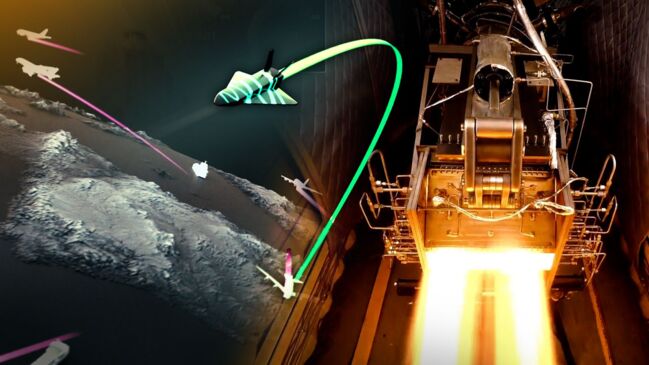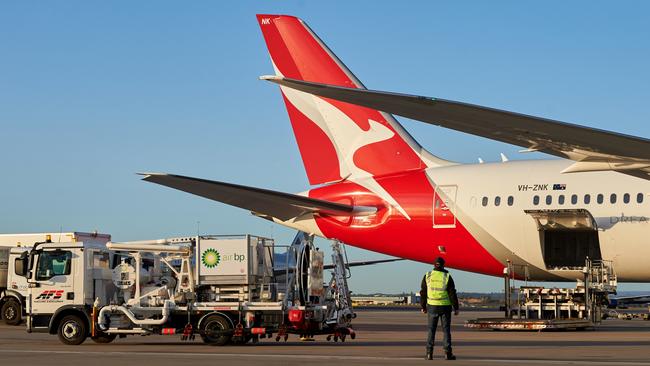Boeing and CSIRO partner up on plan to turn the skies green
Boeing has teamed with the CSIRO on a plan to turn Australian feedstock into five billion litres of sustainable aviation fuel by 2025.

Aviation giant Boeing has partnered with the CSIRO in the hope of turning Australian feedstock into 5 billion litres of sustainable aviation fuel — or enough to power 640,000 flights between Sydney and Melbourne.
A “road map to SAF” prepared by the two organisations shows Australia currently has enough agricultural waste to meet 60 per cent of the country’s jet fuel needs by 2025.
SAF is considered the most practical path for the airline industry to achieve its target of net zero carbon emissions by 2050, given modern jet aircraft can already fly on the fuel.
The main impediment to its production is the “green premium” due to feedstock costs, additional processing steps and a lack of economies of scale.
Currently only 300 million litres of SAF is produced worldwide each year, or about 0.1 per cent of the airline industry’s fuel supply.
As of now, none is being made in Australia, despite increased efforts by airlines, governments, manufacturers and oil companies to establish a local SAF industry.

CSIRO senior manager and lead road map author, Max Temminghoff, said there was no time to waste to stop SAF being made overseas using raw materials from Australia.
“We’re already starting to see some of our feedstocks go overseas,” Mr Temminghoff said.
“A lot of our animal fats are going to the US and Singapore, Japan is purchasing wood pellets and also looking at acquiring land to grow their own feedstocks and ship them back to Japan.”
What needs to happen to turn Australia into a “renewable superpower” is an appropriate government policy framework, more research and development, and a commitment from airlines as to how much fuel they would buy, he said.
Boeing regional sustainability lead for Asia Pacific and road map co-author Heidi Hauf said the benefits of a domestic SAF industry went beyond decarbonisation.
She said as well as creating thousands of jobs and new export markets, local SAF production would contribute to energy security.
“Currently, Australia imports 90 per cent of its liquid fuel, including jet fuel, through long supply chains exposed to geopolitical and climate change risks, and delays associated with quality issues, placing the country in a vulnerable position when it comes to jet fuel security,” Ms Hauf said.
“With alternative technologies such as battery and fuel-cell powered planes still limited in long-haul capabilities and the increasing competition for carbon offsets, SAF offers the largest potential for reduced aviation emissions in the near-term.”

Separate to the Boeing-CSIRO collaboration, are Qantas and Airbus’s efforts to help fund SAF production projects, and BP’s plans for a bio-refinery at Kwinana in Perth.
Mr Temminghoff said a decentralised approach could actually be beneficial in this instance.
“It’s going to be a bit different to the traditional refining process where you have one mega refinery such as in Singapore, that produces all the jet fuel for southeast Asia,” he said.
“Having smaller plants across the country makes a little bit more sense because we don’t want to be competing too much for the same feedstock sources.”
It is hoped the first meeting of the federal government’s Jet Zero Council next Tuesday will help progress the issue.
Tasked with tackling the challenge of aviation emissions, the council included representatives from the various airlines, Boeing, Airbus, the CSIRO and oil companies.







To join the conversation, please log in. Don't have an account? Register
Join the conversation, you are commenting as Logout